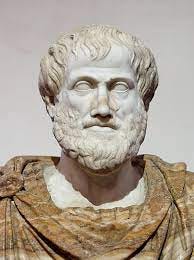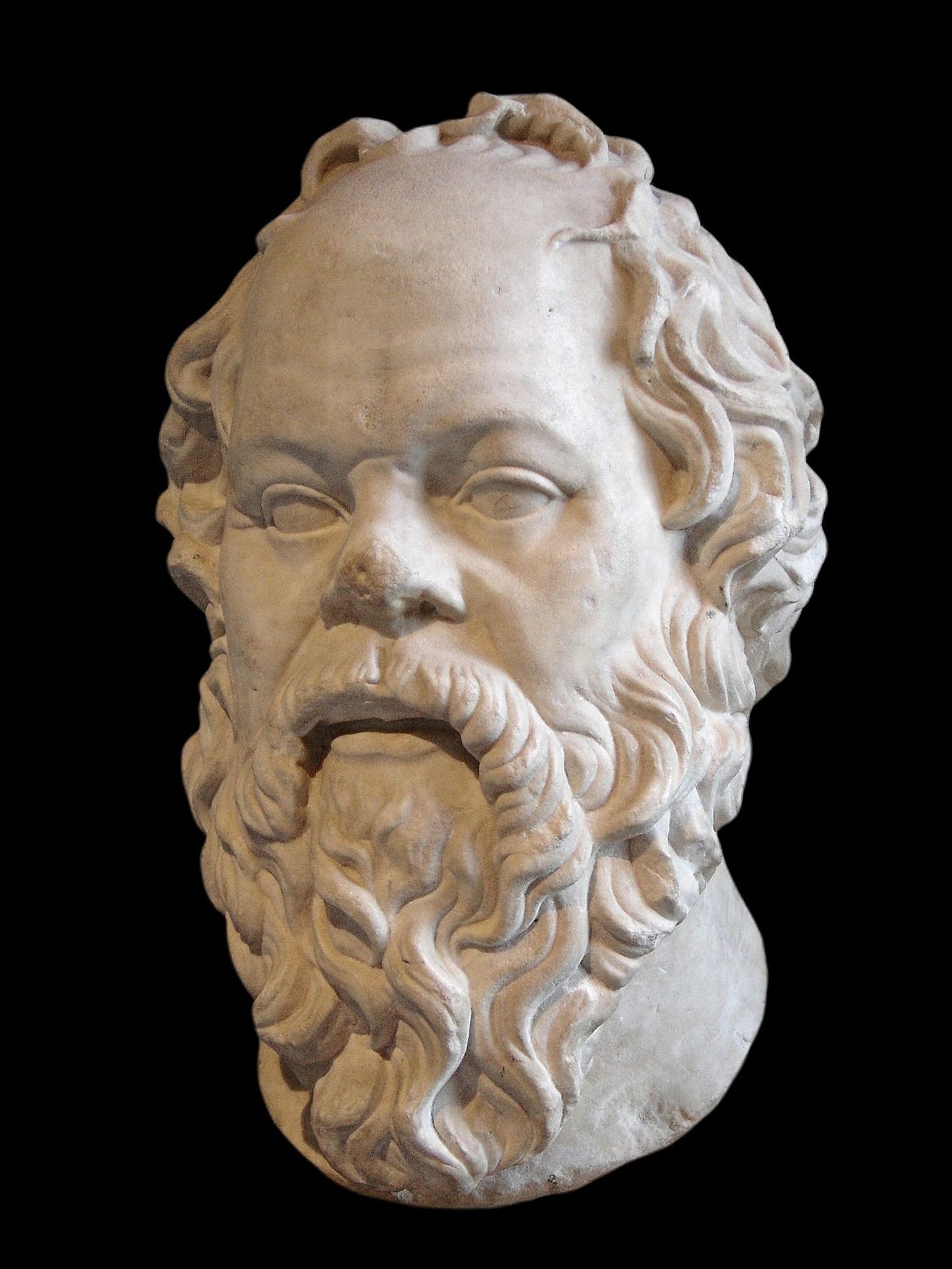How Fictional Characters Can Teach Kids About Philosophers
Connecting famous philosophers to popular characters
American youth today knows virtually nothing about philosophy. The truth is, philosophy is at the core of our existence. If young people were educated on philosophical ideas, they would not only understand history and our society better, but they would be able to live better lives.
Unfortunately, philosophy can be pretty boring to a lot of people, especially kids.
As somebody who strongly believes in the power of philosophical and moral ideas to transform the world, I’ve worked to find a way to make these ideas engaging. That’s why I created CharacterBot, my AI chatbot that uses popular entertainment in order to engage young people with religious, moral, and philosophical ideas.
Today, I’m going to show you how CharacterBot can connect famous philosophers with popular fictional characters. Feel free to use CharacterBot to find more examples.
Aristotle & Simba
Aristotle: Aristotle, one of the most influential ancient Greek philosophers, delved deeply into ethics, politics, and metaphysics. His philosophy emphasizes the cultivation of virtuous character as essential for leading a fulfilling and morally upright life. Aristotle believed that by developing virtues such as courage, justice, and wisdom, individuals could achieve eudaimonia, or flourishing.
In Disney's The Lion King, the character Simba embodies Aristotle's teachings as he navigates the trials and tribulations of his life. Initially, Simba is naive and carefree, but through adversity and self-discovery, he learns valuable lessons about responsibility, courage, and the true essence of leadership. As he confronts his past and embraces his destiny, Simba evolves into a virtuous and wise king, embodying the ideals of Aristotelian virtue ethics.
Discussion Questions:
How does Simba's journey in The Lion King reflect Aristotle's teachings on developing virtuous character?
What virtues does Simba learn throughout the movie? How do these virtues contribute to his growth and transformation?
Can you think of any real-life examples where someone has shown courage, justice, or wisdom in a difficult situation?
Thomas Aquinas & Cinderella
Thomas Aquinas, a towering figure in medieval philosophy, synthesized Christian theology with Aristotelian philosophy. He emphasized the importance of virtues and the pursuit of final happiness through a supernatural union with God. Aquinas believed that moral virtues, such as prudence, justice, fortitude, and temperance, are essential for leading a virtuous life and achieving spiritual fulfillment.
In Disney's Cinderella, the titular character exemplifies Aquinas' teachings through her embodiment of virtues such as kindness, patience, and forgiveness. Despite facing mistreatment and hardship, Cinderella maintains her moral integrity and remains steadfast in her virtuous conduct. Through her resilience and unwavering goodness, Cinderella ultimately finds happiness and redemption, illustrating the transformative power of virtues in Aquinas' moral philosophy.
Discussion Questions:
How does Cinderella exemplify Aquinas' teachings on virtues like kindness, patience, and forgiveness?
Why do you think Cinderella's moral integrity and virtuous conduct are important in the story?
Can you think of any situations where it might be challenging to be kind, patient, or forgiving? How can we practice these virtues in our own lives?
Immanuel Kant & Captain America
Immanuel Kant: Immanuel Kant, a German Enlightenment philosopher, is renowned for his deontological ethics, which prioritize moral duty and universal principles. Kant argued that moral actions should be guided by categorical imperatives, which are principles that are intrinsically binding and apply universally to all rational beings. He emphasized the importance of acting out of a sense of moral obligation rather than personal desires or consequences.
In the Marvel Cinematic Universe, Captain America embodies Kantian principles with his unwavering commitment to moral duty and ethical integrity. Despite being a product of his time, Captain America consistently upholds his principles of truth, justice, and freedom, even when faced with difficult choices and moral dilemmas. His steadfast adherence to moral principles, regardless of personal cost, exemplifies Kant's notion of acting in accordance with duty and universal moral laws.
Discussion Questions:
How does Captain America demonstrate Kantian principles of moral duty and ethical integrity?
Why is it important for Captain America to uphold his principles of truth, justice, and freedom, even in difficult situations?
Can you think of any examples from the Marvel movies where Captain America faces moral dilemmas? How does he make decisions based on his sense of moral obligation?
Plato & Belle
Plato: Plato, a student of Socrates, was a profound philosopher who explored metaphysics, epistemology, and ethics. He is best known for his theory of forms, which posits that the physical world is a mere reflection of a higher realm of perfect and eternal forms. Plato believed that true knowledge is attained through philosophical inquiry and dialectic, leading to the apprehension of the transcendent truths beyond the material world.
In Disney's Beauty and the Beast, the character Belle resonates with Plato's philosophical ideas as she values knowledge, seeks truth, and looks beyond superficial appearances. Despite being surrounded by superficiality and ignorance in her provincial town, Belle yearns for intellectual stimulation and understanding. Her intellectual curiosity and willingness to see beyond external appearances lead her to discover the true nature of the Beast and the transformative power of love and empathy, echoing Plato's belief in the pursuit of knowledge and the transcendence of material reality.
Discussion Questions:
How does Belle's character in Beauty and the Beast align with Plato's ideas about seeking knowledge and looking beyond superficial appearances?
Why is Belle's intellectual curiosity and willingness to see beyond external appearances important in the story?
Can you think of any situations where it's important to seek knowledge and understanding, even if it goes beyond what is immediately visible?
Socrates & Hermione Granger
Socrates: Socrates, an iconic figure in ancient Greek philosophy, is best known for his method of questioning and critical thinking as a means to gain wisdom and understanding. He famously declared, "The unexamined life is not worth living," emphasizing the importance of self-reflection and intellectual inquiry in the pursuit of truth and moral virtue.
In J.K. Rowling's Harry Potter series, Hermione Granger embodies the spirit of Socratic inquiry with her insatiable thirst for knowledge and her relentless pursuit of truth and justice. Hermione's intellectual curiosity and rational skepticism drive her to question authority and challenge conventional wisdom throughout her adventures at Hogwarts School of Witchcraft and Wizardry. Her commitment to critical thinking and her unwavering quest for truth make her a shining example of Socratic philosophy in a magical world filled with moral ambiguity and ethical dilemmas.
Discussion Questions:
How does Hermione Granger embody the spirit of Socratic inquiry in the Harry Potter series?
Why is Hermione's intellectual curiosity and thirst for knowledge important in the story?
Can you think of any situations in the Harry Potter series where Hermione's critical thinking and questioning of authority lead to important discoveries or solutions?
John Locke & Katniss Everdeen
John Locke, a renowned philosopher, emphasized the principles of natural rights, government by consent, and individual liberty. He believed that individuals possess inherent rights to life, liberty, and property, and that governments should be established to protect these rights. Locke argued that if a government fails to fulfill its duty, individuals have the right to resist and overthrow it.
In Suzanne Collins' The Hunger Games trilogy, the character of Katniss Everdeen embodies Locke's teachings through her resistance against the oppressive Capitol and her unwavering commitment to individual freedom. Katniss fights for the rights of the oppressed and challenges the unjust authority, reflecting Locke's belief in the right of individuals to resist tyranny. Her determination to make her own choices and stand up for what she believes aligns with Locke's emphasis on individual autonomy.
Discussion Questions:
How does Katniss Everdeen demonstrate the principles of individual liberty and resistance against oppressive systems in The Hunger Games?
Why is it important for individuals to have the freedom to make their own choices and resist unjust authority?
Can you think of any real-life examples where people have fought for their rights and freedom, similar to Katniss's struggle against the Capitol?
Thanks for reading! Again, check out CharacterBot for more examples and discussion questions. I hope this helps you and/or your child engage with influential philosophers.















